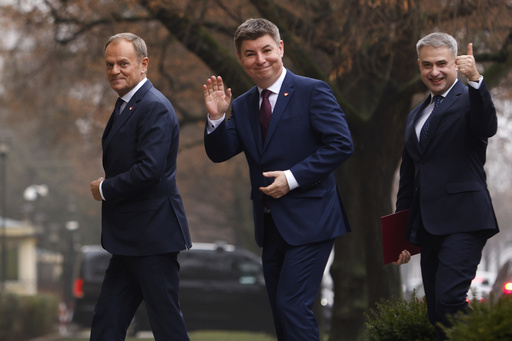WARSAW, Poland (AP) — A fake news report that appeared on Poland’s national news agency saying that Prime Minister Donald Tusk was mobilizing 200,000 men starting on July 1 was probably the work of Russia-sponsored hackers and was designed to interfere with the upcoming European Parliament election, authorities said.
“Everything indicates that we are dealing with a cyberattack directed from the Russian side,” said Krzysztof Gawkowski, a deputy prime minister who also holds the digital affairs portfolio. “The goal is disinformation ahead of (European Parliament) elections and a paralysis of the society.”
Tusk said on X that it was “Another very dangerous hacker attack which well illustrates Russia’s destabilization strategy on the eve of the European elections. … It is increasingly clear how important these elections are for us.”
Russian authorities didn’t immediately provide a reaction to the allegations.
The unprofessional-looking “urgent” report appeared Friday at 2 p.m. (1200 GMT) on Polish News Agency, or PAP, the country’s national wire service.
Eight minutes later, the agency “killed,” or removed, the report and then issued a statement saying that it wasn’t the source of the article. The hack was repeated and the fake news was pushed again to the wire and was killed again.
Security officials said that their experts were working to find the source of the hack, and also insulate PAP from further attempts to publish fake news on its systems.
The government says that Poland, which supports Ukraine in the war with Russia, is being targeted in a hybrid war directed by the intelligence services of Russia and Belarus. Polish authorities say the techniques being used include sending migrants to the border from the Belarus side; sabotage including attempted arsons; espionage cases; and cyberattacks on state administration offices.
Gawkowski said that Poland’s sensitive infrastructure was being subjected all the time to various kinds of incidents and cyberattacks.
The European Parliament election in Poland will be held on June 9.
This website uses cookies so that we can provide you with the best user experience possible. Cookie information is stored in your browser and performs functions such as recognising you when you return to our website and helping our team to understand which sections of the website you find most interesting and useful.
